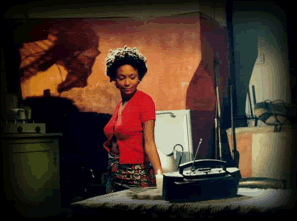
Why is this film not talked about more often? It is beautifully executed by a filmmaker, Bernardo Bertolucci, at the peak of his abilities. It stars Thandie Newton and David Thewlis in daring, subtle and charged performances. It is from an excellently written script, Bertolucci and wife, Clare Peploe, brilliantly adapted and changed from a short story by James Lasdun, The Siege.

Shot by shot, the film is composed of elegantly selected perspectives which follow these two characters, "emotional exiles" and their developing love for one another. Shandurai is an African immigrant fleeing trauma and seeking a new life as a medical student in Italy while working in the home of a solitary pianist, Mr. Kinski (Thewlis). Newton is beautiful. She is extraordinarily beautiful. Thewlis has shown potent sexuality in the films of Mike Leigh and here he is reclusive and intense. The strength of the character develops through his music and implied actions.
After declaring his love for her, she is terrified and infuriated. He demands to know how he can make her love him and she tells him that he could get her husband out of prison in their home which has become a military dictatorship. He is stunned at not even knowing that she is married. And here begins a parable of devotion and love. The film opens with a folksinger singing in Luou, and he appears in Shandurai's dreams, pressing her feelings and passions forward. Spoiler: He sells everything, his inheritance and eventually his Steinway, his voice, to buy the freedom of her husband. She comes to love him and they share one night together, and in the morning her husband arrives at the door freed.
The film is nearly silent, but for the powerful presence of music: the piano played by Kinski and the African pop music loved by Shangurai. The film unfolds detail by detail and in the excellent commentary by Bertolucci and Peploe, Bertolucci explains that he wants to follow the style of Hitchcock, by creating suspense in the audience. It is a story of two wounded souls who must press beyond their safe, structured lives in order to find love and companionship. Maturely, there is not a traditional happy ending, but rather an understanding, which is often the most that can be hoped for in adult relations.

In the commentary, Bertolucci reveals that he doesn't do a storyboard. He creates a shot list the day before. He digests the material and then proposes a means of approaching the story. I can't believe that. His Cinematographer must go nuts. He also talks about showing off in his shots, being acrobatic, and he feels that age has subdued him. True, Il conformista is a dazzling film. And yes, Besieged is more subtle, but the editing is more challenging and exciting. Close-ups of Newton are divided, using jump cuts to strike notes of emotions, "palpitations of the heart of the movie" he describes in the commentary. For example, two shots of Newton getting news of her husband were taken in two different emotional tones and then intercut to create a complex moment and story. The film was shot with three cameras! What a luxury!
The themes of loving difference, the means of moving towards another and the connection between generosity and passion. I can go on and on. It's wonderful. Unexpectedly, the love scene is so different from Last Tango in Paris, for example. They put their legs over one anothers' in a tender moment and awake at the final moment nude and embracing, preventing the other from moving without one's consent.

The film feels small in many ways, stemming from the intimacy of the cast and location in a beautiful Roman home, pierced through by a spiral staircase. There are entire characters whose faces we do not see. We only see what is important and essential. This narrowness makes it feel like folklore, a modern parable, leading to a moral that generosity and self-sacrifice lead to, and are inherent in intimacy and love. It's wonderful.
According to the author of the short story in the commentary, it is based upon a medieval tale by Boccaccio. So there.
As a visual artist, I am mesmerized by the views of the staircase and shadows on the wall; the cinematography is radiant. The title is odd, to me, but this film is brilliant...I will locate this DVD to watch again and again.
ReplyDelete